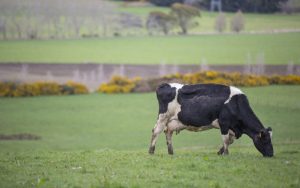
Salaries across on-farm positions were up by a weighted average of 14% since 2020, with the mean salary rising to $63,931. Dairy sector salaries increased by an average of 15%, with salaries for sheep and beef positions up by an average of 14% and arable salaries up by an average of 8%, the report found.
Rabobank New Zealand chief executive Todd Charteris said for the sector to flourish it was essential it was viewed as an attractive place to work. Competitive remuneration was a key in enticing school-leavers and other workers into on-farm roles.
“Farm owners have found it increasingly difficult to source skilled labour over recent seasons, and this is highlighted by the report which found close to 70% of employers were now finding it harder to source good employees than 12 months ago,” Charteris said.
Covid-19 border restrictions had contributed to this situation by limiting access to overseas workers, while New Zealand’s low overall unemployment rate had also hindered efforts to get more local workers to take on new jobs in rural locations, Charteris said.
Arable workers earned the largest average salary at $65,498, slightly more than dairy workers of $64,658 and the average sheep and beef salary of $62,352, the 2022 Federated Farmers – Rabobank Farm Salaries Remuneration Summary Report shows.
The dairy operations manager role, the most senior dairy position, recorded the largest salary increase of all the surveyed on-farm positions, jumping by 27% from two years ago to a mean of $107,593.

“This is the highest average salary of all the surveyed roles and reflects the significant responsibility that comes with this role which includes managing the farm’s physical performance and budget as well as negotiating with a host of farm supply companies,” Charteris said.
The most senior arable sector role also jumped by 20%. There were also strong salary increases for some entry level roles, including dairy farm assistant, up by 17%, and sheep or beef general hand, up by 16%, the report shows.
Accommodation was being provided for 75% of dairy workers employees, 61% of sheep and beef employees and 41% of arable workers.
“The Government’s recent announcement that it would provide border exemptions for 1580 international primary sector workers will help alleviate these labour shortages, however, it’s clear more needs to be done by the industry to encourage young New Zealanders into careers in the sector,” Charteris said.
“Since mid-last year, international workers have been required to earn an hourly rate above the median wage to be eligible for some lengths of visa. In some cases this prompted employers to bump up their existing international workers’ salaries to ensure they surpass this threshold and are therefore eligible for a longer visa period,” Charteris said.
The heathy returns for farming businesses over this period and the high recent rate of inflation played a role in the growth of salaries, Charteris said.
The report grouped the results of a remuneration survey conducted across late 2021 and early 2022.
The report also provided a range of information relating to on-farm positions including total package values, that factored in other employment benefits such as food and vehicle use, workers’ length of service, accommodation costs and weekly hours worked.
























